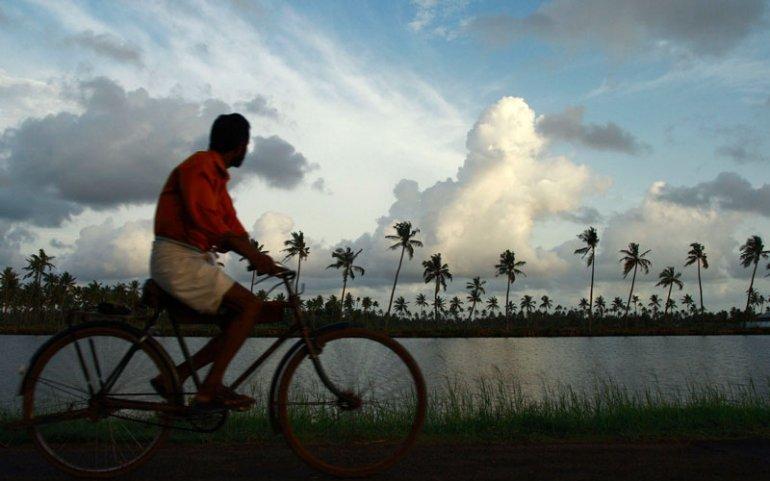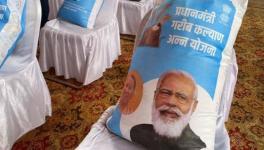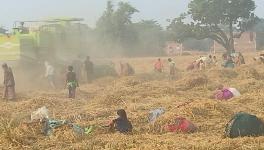As Gulf Dream Fades, Keralites Start Returning Home

Arabian Gulf countries, once the paradise in the dreams of majority of Keralites, have been losing the charm after a general slowdown in the Gulf since 2010 when the price of oil had dropped. The crisis was further exacerbated when many Arab countries turned against Qatar and because of the nationalisation policies like Nitaqat of Saudi Arabia.
Over the years, the social and economical circumstances in Kerala have changed to a great extent, and it has made an impact on Kerala’s Gulf migration. It does not mean that people have stopped migrating in search of jobs and better wages. Most of the Gulf returnees are unskilled or semi-skilled workers and traders. Highly skilled and technically qualified Malayalis have continued working in the Gulf countries.
A report by Centre for Development Studies (CDS), Thiruvananthapuram, published in September 2018, says that migration from Kerala is falling. The number of returning migrants is increasing every year, and that the ‘long history of migration from Kerala to the Gulf is in its last phase’. As per the study, a decrease of 3 lakh migrants has been seen during 2013 and 2018 which accounts one-tenth of the total migrants in 2013.
“In 2018, we reached a stage where migrants’ figures showed a negative growth of 11.6%," said S. Irudaya Rajan, who led the Kerala Migration Survey (KMS) 2018. The survey is the 8th in a series of studies on migration undertaken by the Centre for Development Studies (CDS) since 1998.
Read More: Kerala Shows the Way By Embracing Migrant Workers
Explaining the reason for the decline in emigration, Irudaya Rajan said that it could be due to the cumulative effects of the demographic advances which have decreased the population in the migration-prone age-group (15-29 years) as Kerala attained replacement fertility level in around 1987.
"Wages in the Gulf economies have not improved after the global economic crisis. This has led to lower savings, de-motivating them to migrate. Another reason is wages in the domestic economy have increased as compared to other states," said Irudaya Rajan.
He also said that the price of oil, on which the Gulf economy is based, has been declining since 2010.
"Although the last one year has seen a slight increase in oil price, the growth of the Gulf economy has suffered a major setback. Due to nationalisation policies such as Nitaqat and recently introduced family taxes in Saudi Arabia, the Gulf Cooperation Council (GCC) economies appear to be not that conducive for current and prospective migrants," Irudaya Rajan noted.
The study notes that 89.2% of the total migrants from Kerala are in the Middle East countries. In 2013 while there were 20.70 lakh migrants in the Middle East, the figure fell to 18.93 lakh in 2018. The remaining 10% of the migrants are concentrated in the other countries like the USA, the UK, and Australia.
In 2013, there were 8.9 lakh Malayalis in the UAE, while in 2018, the number stands at 8.3 lakh. The number was 5.22 lakh in Saudi Arabia in 2013, which has now fallen to 4.87 lakh in 2018. In Qatar, there has been an increase from 1.06 lakhs in 2013 to 1.86 lakhs in 2018, but in Bahrain, there has been a fall from 1.49 lakhs in 2013 to 0.81 lakhs in 2018.
The study found that one in every fifth household in Kerala has a migrant.
The estimated total annual remittance to Kerala from the migrants working in Gulf has been placed at Rs 85,092 crore.
"Of the total remittances at the state level, Malappuram district receives 21%, followed by Kollam (15%), and Thrissur (11%)," added Irudaya Rajan.
"However, remittances to the state have increased. This is due to the fact that Keralites in the Gulf have climbed the social ladder, and are earning higher wages, allowing them to remit more. Thanks to the weakening rupee, families remit more. The KMS 2018, has also confirmed that the migration from Kerala is falling and return of migrants is on the rise," he said.
As estimated by KMS 2018, the number of return migrants is 1.29 million, which is about 60% of the number of the migrants.
"The KMS 2018, would be an invaluable pointer for further policy formation in terms of international migration and also employment schemes of the government. The last 20 years of KMS proved that almost 40% of total remittances to the state were used by migrants in land, housing and its assets,” he added.
However, Irudaya Rajan doesn’t believe that the Gulf dream is over for Malayalis.
“The Gulf economy still needs a lot of unskilled workers. It’s just that the salary levels are much lower than what people were getting in 2008 because of the global crisis. It’s comparatively better for the people from states like Uttar Pradesh, Bihar and countries like Nepal, Pakistan and Bangladesh,” he told The Indian Express. In recent years, the Gulf has also seen an influx of workers from African continent and Philippines etc.
Read more: Migrant Workers in Kerala No Longer Live as Outcasts
KV Abdul Khader, a CPI(M) legislator from Guruvayur and a key office-bearer of an expatriate collective, told The Indian Express, “Our estimate is that most of them returning are still unskilled or semi-skilled workers and traders. They are people who may have been working as help in houses in Saudi or Oman, driving cars, managing textile shops or running stores selling cell-phones. Once the nationalisation process kicked in, they lost their jobs.”
“So, a lot of the technically qualified and highly educated Malayalis are still sticking to their jobs there. Similarly, of the people now migrating, most of them are skilled in some way.”
Understanding how reverse migration affects the state economy and how returnees face the new realities, the Kerala government had implemented a special entrepreneurial scheme in 2017. The scheme, which was rolled out by the Kerala Financial Corporation (KFC), creates small business enterprises and training 600 people annually for the five years. The training programme is in collaboration with Norka Roots.
(With inputs from IANS)
Read more: Migrant Workers in Kerala No Longer Live as Outcasts
Get the latest reports & analysis with people's perspective on Protests, movements & deep analytical videos, discussions of the current affairs in your Telegram app. Subscribe to NewsClick's Telegram channel & get Real-Time updates on stories, as they get published on our website.
























